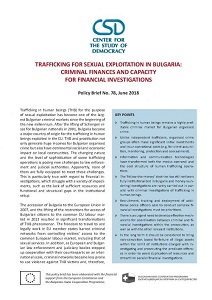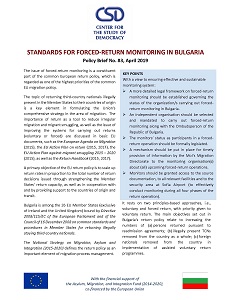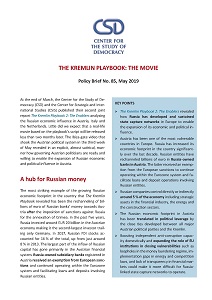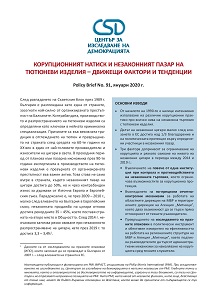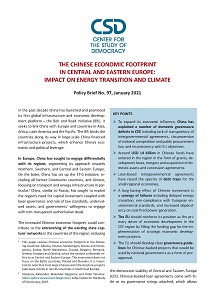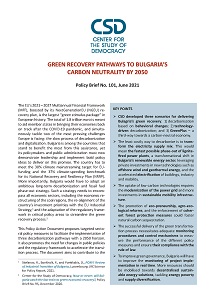
CSD Policy Brief № 76: The Management of Frozen and Forfeited Assets in Bulgaria.
Политически брифинг № 76 на CSD: Управление на обезпечени и отнети активи в България
Civil forfeiture of illegally acquired assets is one of the most important tools in the fight against crime. Forfeiture is used by state authorities to strip criminals of their illicit proceeds, thereby preventing them from expanding illegal activities and reinvesting their proceeds into the legal economy. A secondary benefit of forfeiture is that forfeited property, or the proceeds of its sale, may be used to provide specialised services for the benefit of victims of crime. Moreover, the social re-use of forfeited criminal assets, which are transferred to local municipal authorities or non-governmental organizations, may serve as setting a public example for crime groups and is key in achieving transparency in the fight against crime.
More...
